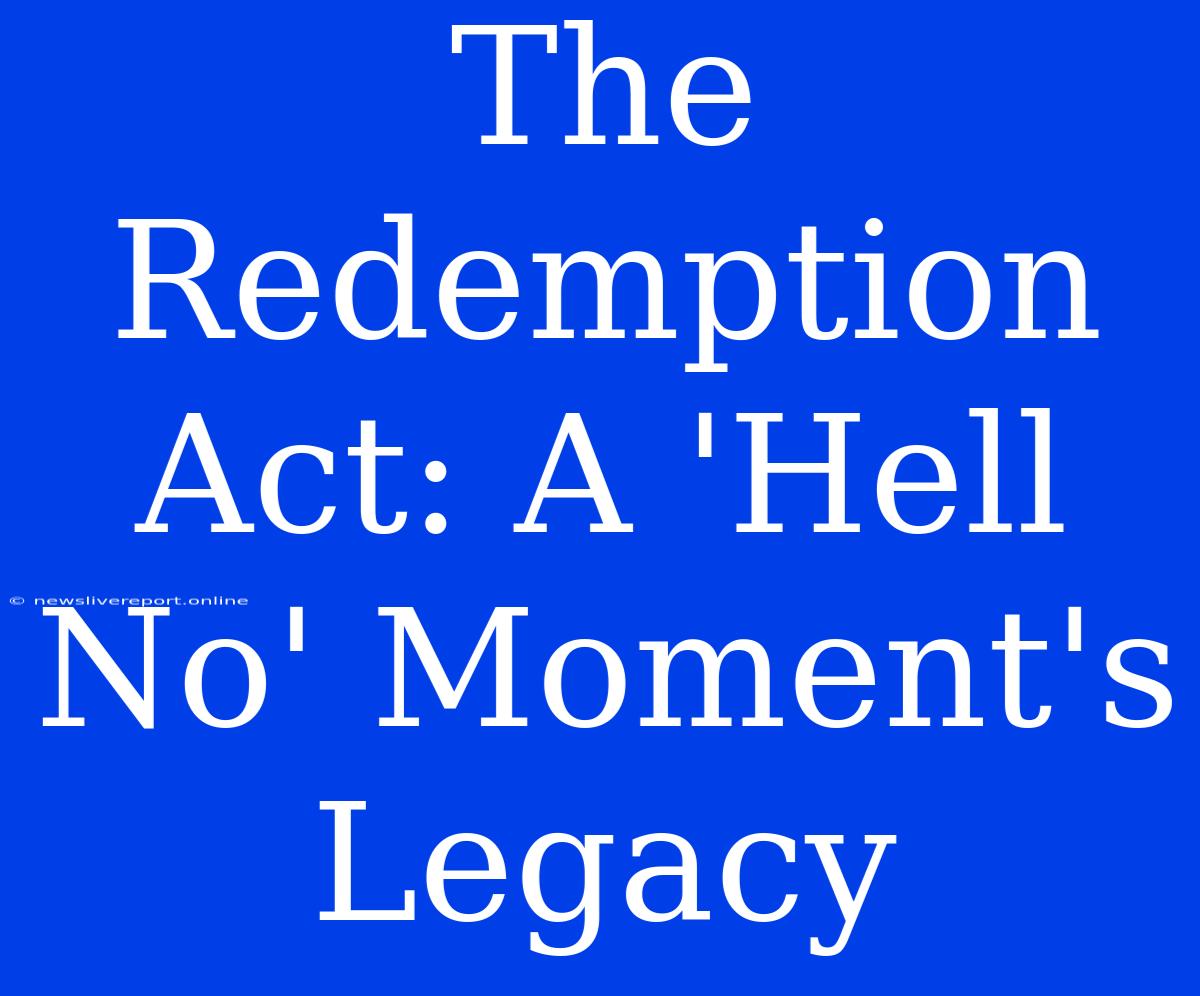The Redemption Act: A 'Hell No' Moment's Legacy
The Redemption Act, also known as the "Hell No" moment, stands as a pivotal event in American history, marking a significant shift in public sentiment and political discourse. While the Act itself may have been a legal maneuver, its impact extended far beyond the courtroom, leaving a lasting legacy that continues to shape debates about justice, accountability, and the role of the government.
A 'Hell No' Moment: The Backdrop
The Redemption Act arose in response to a wave of social unrest and political polarization, culminating in a series of high-profile events that shook the nation's core. The Act was introduced as a direct response to the "Hell No" protests, a series of massive demonstrations that erupted across the country, demanding accountability for systemic injustices and demanding a fundamental shift in the nation's moral compass.
These protests, fueled by a potent cocktail of anger, frustration, and a yearning for change, served as a potent reminder that the status quo was no longer acceptable. The "Hell No" sentiment resonated throughout the nation, permeating every facet of society, from the streets to the halls of Congress.
The Act's Provisions: A Bold Attempt at Reform
The Redemption Act, born from the fires of these protests, was a complex piece of legislation aimed at addressing the systemic inequalities that had fueled the unrest. The Act sought to address several key areas:
- Economic Justice: The Act included provisions aimed at redistributing wealth, ensuring fair wages, and providing access to affordable housing.
- Criminal Justice Reform: It aimed to dismantle the existing system of mass incarceration and address racial disparities within the justice system.
- Environmental Justice: The Act sought to protect the environment, particularly communities that had been disproportionately impacted by pollution and industrial development.
While the Act was met with mixed reactions, its bold attempts at reform sparked a national conversation about the need for change. It challenged the existing power structures and forced a reassessment of the nation's commitment to equality and justice.
The Legacy of the Act: A Turning Point in American History
The Redemption Act, though controversial, stands as a pivotal moment in American history. It marked a turning point, where the "Hell No" moment ignited a fire for change that continues to burn today. The Act's legacy can be seen in:
- The Rise of Progressive Movements: The "Hell No" protests and the subsequent passage of the Redemption Act helped to galvanize progressive movements across the country, advocating for social justice, economic equality, and environmental protection.
- The Shifting Political Landscape: The Act's passage shifted the political landscape, pushing the boundaries of acceptable discourse and forcing political leaders to engage with the issues that had been fueling the protests.
- The Ongoing Struggle for Justice: The Redemption Act may have represented a significant step forward, but the struggle for justice remains ongoing. The Act served as a catalyst for continued advocacy, pushing for further reforms and challenging the status quo.
The Enduring Impact of the "Hell No" Moment
The "Hell No" moment, the spark that ignited the passage of the Redemption Act, remains a potent reminder of the power of collective action. It demonstrates that public pressure and a willingness to challenge the status quo can force significant changes. The legacy of the Redemption Act, born from this moment, continues to inspire activists, advocates, and ordinary citizens to demand a more just and equitable society.
This historical moment stands as a testament to the power of the people, a reminder that even in the face of seemingly insurmountable odds, change is possible when individuals come together to demand a better future.

